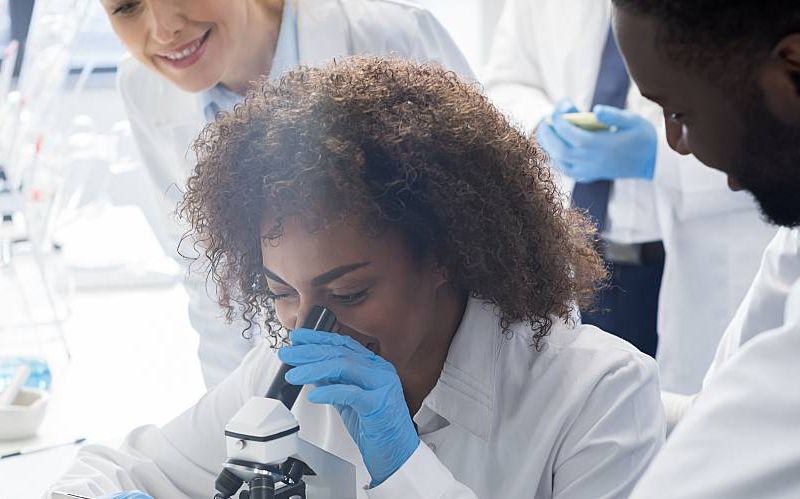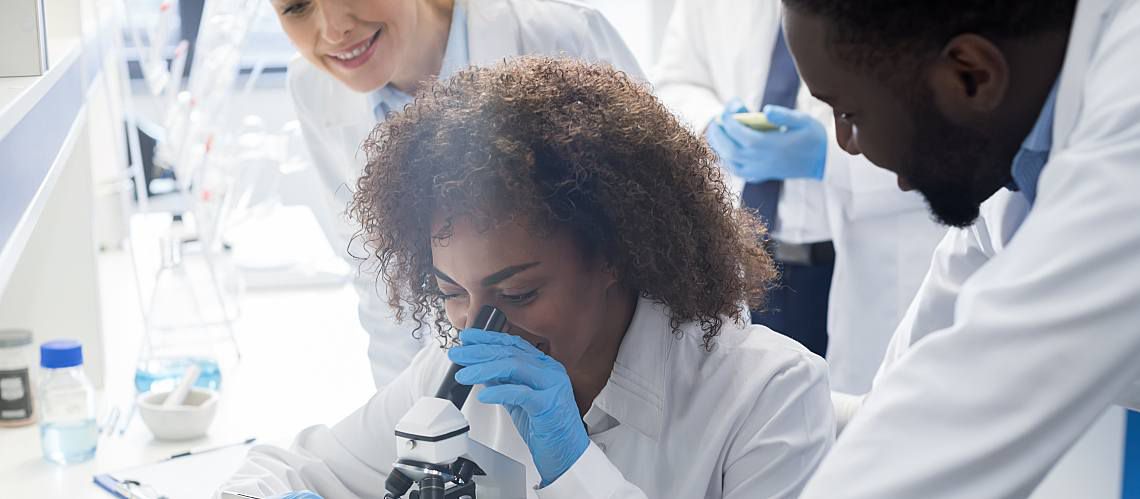Staff Training Guide for Water Lab Managers: When, How, and Why to Train Your Team


Regular training is the secret to efficient water testing labs that deliver timely, accurate results to clients. The benefits of regular training go beyond deliverables, though. When your staff understands and practices proper work processes, it may lead to fewer costly accidents and errors. Routine training can also improve team morale and promote greater job satisfaction.
If your training approach needs work but you aren't sure where to begin, this guide can help. In this resource, you'll learn the events that prompt additional training, training methods that garner the best results, and available educational options to inform your trainings.
When to Train Your Team
Whenever a new employee joins your staff, they'll need training to get familiar with your lab's mission, work processes, and rules. There are a few other occasions when staff education initiatives can greatly benefit your team.
Upon the Release of New Industry Regulations
To avoid compliance issues and maintain certifications, it's critical to update your team whenever there are new water industry regulations. This training will also go a long way in maintaining client relationships and making your lab more marketable.
When You Acquire New Equipment
Operational training is a must when new technology becomes available, whether through the purchase of new equipment or an upgrade to existing technology. Training is also necessary when technology affects your lab's workflows or standard operating procedures.
When Team Members Change Roles
Training not only helps employees shine in their current roles, but it also readies them for promotions and greater responsibility. If you're promoting a lab technician to a management position, for instance, you'll want to offer them training opportunities to develop their management style and position them for success.
Anytime You See an Opportunity
Training should be a regular, ongoing process, not just an annual or biannual break in your lab's routine. Take time to regularly refresh your employees on important procedures and compliance guidelines, such as incoming quality assurance parameters.
What Training Options Work Best for Labs
Given the ever-changing science and technical nature of this industry, there are a ton of training opportunities for you to choose from. Each of these options will naturally impact your budget and schedule differently, and there isn't a one-size-fits-all approach. When choosing educational programs, it's important to contemplate where you want your lab to be in a year as well as what needs improvement now.
To achieve the best immediate results and future-proof your business, consider regularly incorporating these three methods into your training process.
1. On-the-Job Training
It's not only the simplest and most cost-effective training method, but on-the-job instruction is also the easiest way to incorporate actual working scenarios into education sessions. This training may include job rotations, real-time coaching at the bench, and cross-training. This approach is especially effective when you have particular skills or experiences to share, such as best practices for handling a new test.
2. External Industry Training
Sometimes it's worthwhile to tap an outside expert for your training sessions, as they may be able to dive deeper into new regulations and developments. These external industry training sessions can include off-site, in-class trainings; on-site, in-person trainings; and online trainings.
The Environmental Protection Agency and state agencies offer extensive guidance concerning technical training opportunities and training related to lab certification requirements, as do regional and industry organizations such as the National Ground Water Association and the Association of Public Health Laboratories.
Industry conferences are also good external training options. Consider having your employees register for one hosted by the Water Quality Association, the American Water Works Association, or another reputable organization.
3. Course-Based Training
The Water Quality Association is also one of the groups that offer smaller workshops and seminars. Its Introduction to Water Contaminants and Treatment Course can be useful as a periodic refresher or an overview for new hires.
How to Keep Training Efforts Successful
Regardless of the topic or format you choose, training sessions need to strategically fit into your lab's operations to be successful. They also need to be well planned and joined by appropriate follow-up sessions. At a minimum, you'll want to:
- Have a specific goal in mind for the training.
- Understand how the topic will enhance your lab's performance.
- Ensure that employees understand the material and can implement its lessons.
In addition, research and plan training opportunities that complement each other. These sessions shouldn't be regarded as one-off events but, rather, part of a long journey to uplevel your employees' knowledge and expertise. When sessions pick up where another has left off, it reinforces previously shared learnings and helps your staff better retain the information.
Your water lab requires up-to-date scientific and technical knowledge in order to stay compliant and best serve its clients. By following these general guidelines, you can ensure your employees get the training they need to expertly tackle their tasks.






